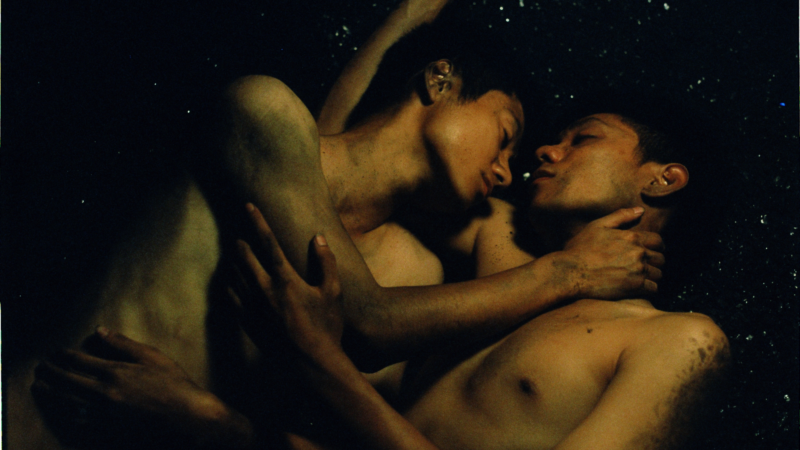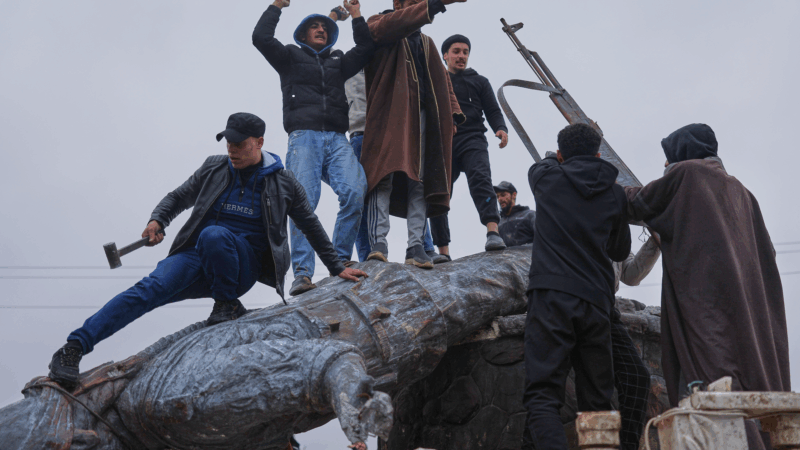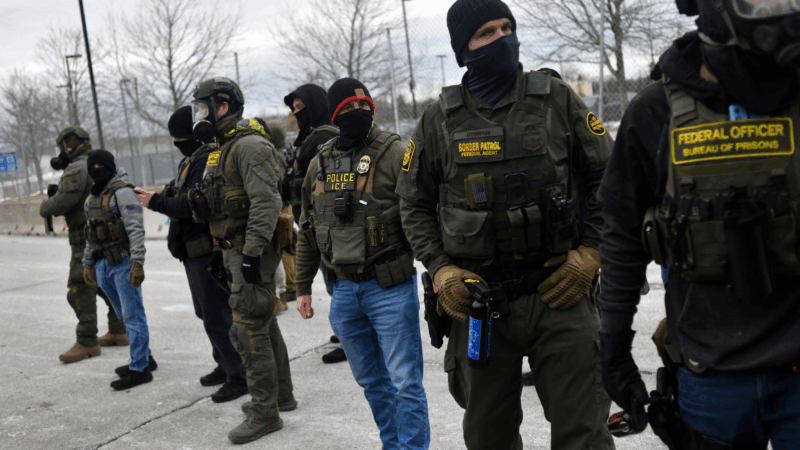‘Việt and Nam’ is a film about love, exile and the memory of war
Some of the most touching scenes in Việt and Nam happen underground, when the two young coal miners at the center of the film embrace each other in silence. Those are moments when they can love each other freely.
But their relationship almost takes a backseat in the film, which will hit select theaters in the U.S. on Friday. Set in 2001, it follows the lovers’ quest to find the body of Nam’s father — a soldier who died during wartime in Vietnam — and Nam’s decision to leave the country for a better life.
Writer and director Trương Minh Quý says the film, which debuted at the 2024 Cannes Film Festival, was banned in his home country of Vietnam because the movie is “very dark.” The Vietnam Cinema Department has not responded to NPR’s requests for comment.
All Things Considered host Emily Kwong spoke with Trương about what ban meant for him, his inspirations for the movie and what he hopes people will take away from it.
This interview has been edited for length and clarity.

Interview highlights
Emily Kwong: Both these miners are incredibly poor and one of them wants to smuggle himself out of Vietnam. And I understand that one of the points of reference for your film was an actual event back in 2019. In Essex, England, 39 Vietnamese migrants were found dead in a refrigerated truck. It was part of a smuggling trip that went tragically wrong. What part of that event did you want to explore in your film?
Trương Minh Quý: Yeah, every time I talk about this event, it’s very difficult for me. Let me try how to say — so during the winter, 2019, I was living near the border of Belgium and France. And actually, that place is very close to where these people got on the truck that later arrived in the U.K. So, I was very saddened and actually very perplexed because, you know, all of this was happening so close to me. So, this event, it really made me question [myself] and my condition as a Vietnamese who is a temporary resident in Europe. And I think I felt the need to do something, to do a film on the question of home and exile … So, we can say that this event is a strong, emotional starting point. But the film Việt and Nam is not an adaptation; the film is not trying to tell the story of that event.
Kwong: No, that event created an emotional place within you from which you explored and made this movie.
Trương: Yeah.
Kwong: Talking about the subject matter itself, April 30 of this year marks 50 years since the end of the Vietnam War. And that’s long before you and I were born. I was also born in 1990. So, you and I are kind of about the same age. And I’m wondering what kinds of depictions of the war did you see in film growing up and how did that inspire your filmmaking? Because I remember seeing Apocalypse Now in high school. What films are you drawing from in making this?
Trương: I grew up with both, let’s say, traditions of film about the Vietnam War. One is Hollywood and the other one is propaganda movies made by Vietnamese film studios. So I think making this film, I tried to use both memories. In the film, several scenes and images actually refer directly to Hollywood films, such as the shot coming out of the hole in the rock, which reminds the audience of the vision one would have of a shot coming out from a bunker during the second World War in, for example, Saving Private Ryan. And other sequences are reminiscent of propaganda films. For example, the very last scene when Việt and Nam lie next to each other.

Kwong: Việt and Nam debuted at the Cannes Film Festival. Congratulations. That’s huge. And it is currently banned in your country of origin, in Vietnam. What is your understanding of why and how do you feel about that?
Trương: I think now I am somehow recovered from that. But I think when that just happened, May last year, just shortly before the film premiered in Cannes, I think that was very heavy for me, because this was the first time I had a film banned, and I didn’t know how to process this. And then, of course, the public opinion in Vietnam at that time, they didn’t see the film. So, there were many misunderstandings. And basically, that was a very chaotic time for me. My understanding is that the reason why they banned my film is because they said the film was very dark, very negative, which I don’t think like that.
Kwong: Now that the movie is starting to appear in select theaters, what do you wish the Vietnamese government would see in the film? What do you wish they understood about it?
Trương: I wish that they could see the film with an innocent eye. So that they could feel the emotions, the beauty of the landscape, of the people, you know, that are captured in the film. And every time I screened the film outside of Vietnam, for example, in France, many audiences, Vietnamese overseas, came to me after watching the film. I remember there was this old lady and she said thank you for making this film that speaks to her heart of 72 years old. And the film made her feel homesick. That for me was very [moving]. And that’s what I really hope people could get from watching the film.
High-speed trains collide after one derails in southern Spain, killing at least 21
The crash happened in Spain's Andalusia province. Officials fear the death toll may rise.
United Nations leaders bemoan global turmoil as the General Assembly turns 80
On Saturday, the UNGA celebrated its 80th birthday in London. Speakers including U.N. Secretary-General António Guterres addressed global uncertainty during the second term of President Trump.
Parts of Florida receive rare snowfall as freezing temperatures linger
Snow has fallen in Florida for the second year in a row.
European leaders warn Trump’s Greenland tariffs threaten ‘dangerous downward spiral’
In a joint statement, leaders of eight countries said they stand in "full solidarity" with Denmark and Greenland. Denmark's Prime Minister Mette Frederiksen added: "Europe will not be blackmailed."
Syrian government announces a ceasefire with the Kurdish-led Syrian Democratic Forces
Syria's new leaders, since toppling Bashar Assad in December 2024, have struggled to assert their full authority over the war-torn country.
U.S. military troops on standby for possible deployment to Minnesota
The move comes after President Trump again threatened to invoke the Insurrection Act to control ongoing protests over the immigration enforcement surge in Minneapolis.







